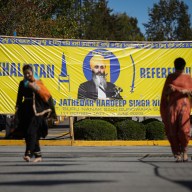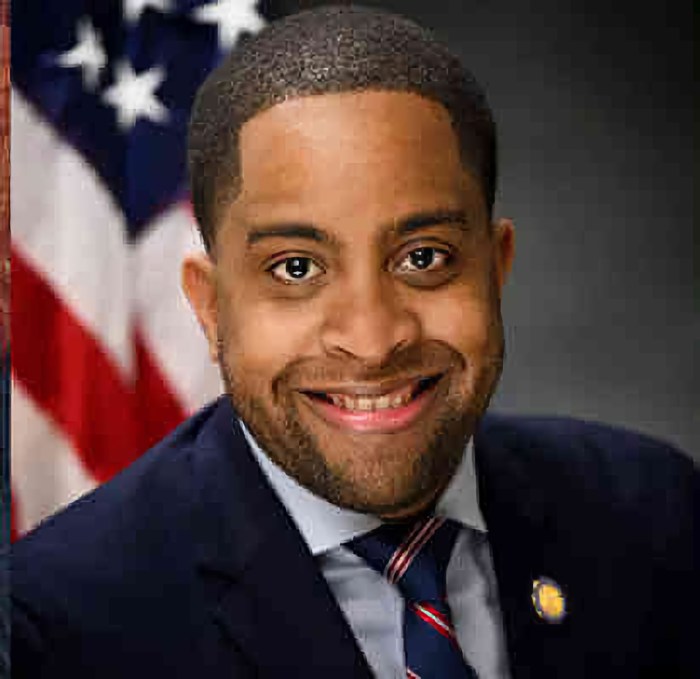You may know Eva Longoria as the sultry Gabrielle Solis on Desperate Housewives, but when she’s not stirring up drama on Wisteria Lane, the 36-year-old actress is a passionate philanthropist for a variety of causes, including farmworker rights. As the executive producer of “The Harvest/La Cosecha,” Longoria sought to raise awareness of child farmers and the challenges they face on and off the fields. She spoke with Metro about her involvement in the film and how you can help her cause.
How much did you know about this issue before you got involved with the film?
I’ve always been a farmworker advocate, but even I was surprised to find out the statistics of child farmworkers. When Shine Global came to me with the idea of the documentary, I was floored to learn how many children still work in agriculture in the United States, and how many kids are unprotected and uneducated, and live in poverty. I was literate of the community and the dialogue, but I was very ignorant of the amount of children that were still in the fields.
Would you say that’s what surprised you the most about this topic?
Yeah. I was honored to be able to humanize the issue by doing this film and telling this story of these kids, because it’s one thing to hear statistics all the time, when you say, you know, 500,000 children worked in fields as young as 10, that’s shocking, but when you hear the story of Zulema who was one of those children, and you see her life, and you see how hard it is for her to go to school, and you see her family life, and you see how they barely get by, suddenly that statistic has meaning and it’s humanized in a way where people can empathize.
Why were you drawn to this particular issue?
Because I eat fruits and vegetables. You don’t have to be a farmer to fight for farmworker rights. You don’t have to be an African to fight for African rights. You don’t have to be a dolphin to care about dolphins in Japan — it’s called compassion. As a citizen of this earth, you should take interest in things that are outside of yourself. This is one issue that I heard about early on in my activism and I thought this affects everybody: It’s the number export business of America. We’re not number one in education, we’re not number one in technology, we’re not number one in science, but we are number one in agriculture, and this is how we treat that labor force.
Were you surprised to learn that these practices take place right here in America?
Yeah, absolutely. America has some of the strictest import/export laws — I mean we won’t take a T-shirt made in a sweat shop in China, we won’t buy chocolate by the cocoa fields in the Ivory Coast if they’re made by child slave labor, but yet we allow it to happen in our own country, and it’s a little hypocritical and it needs to be addressed. The laws protect the big businesses, the corporations, because these are not family farms anymore. One percent of all farms in America are family farms. These laws only give the economic advantage to big corporations, and big corporations use lobbyists to say the cost will pass on to the consumer, and therefore the legislation and the policy doesn’t change because of these strong agro-business lobbyists who will pass on any kind of increase in salary or wages or hourly wages on to the consumer, and that’s not fair. It’s not just.
You’ve introduced the CARE Act, which seeks to change the laws for child farmers, on Capitol Hill. What can we do to get involved?
There’s so much you can do on a bigger scale than on a smaller scale. Obviously, on the bigger scale is call your congressperson and try to help get the CARE Act passed because it will help keep children out of the fields working 14 hours a day — basically slave labor for less than minimum wage, in 110 degree, 115 degree heat. On the smaller scale you should always eat organic because the pesticides that are still used in the field are in a measurement that is for an adult male, a 150-pound male. When people go, “Oh but they cut down pesticides, and they’re so not harmful to anybody in fields, they just spray enough to keep the bugs away,” it’s not true because if you’re smaller than a 150 pound male, like if you’re a 110 pound woman or if you’re 40 pound child, those doses do affect you because they’re triple the amount your body, that children’s bodies can [handle]. So by eating organic you’re not only eating better for yourself, you’ll actually know that that child who picked that apple or orange or carrot or tomato was not sprayed with a chemical while they were picking the food that you’re eating.
What was your involvement like on this film?
My job as an executive producer was to raise the money to keep sending [director U. Roberto Romano] money to keep him in the field (laughs). [We did] lots of fundraising and a lot of grassroot fundraising. We raised the money to do this film by nickels and dimes. It was amazing how many people who were farmworkers donated to the cause whatever they could — 20 dollars, 200 dollars — and others who were not but added compassion because they consume the products that this cheap labor provides.
Follow Meredith Engel on Twitter @MeredithatMetro
















